Are you ready to kickstart your engineering career with the perfect internship? Crafting a compelling letter of application can set you apart from other candidates and showcase your passion and skills. From highlighting relevant coursework to sharing hands-on experiences, every detail counts in making a great first impression. Dive into our guide to discover expert tips and templates that will help you land that coveted engineering internshipâread on to learn more!
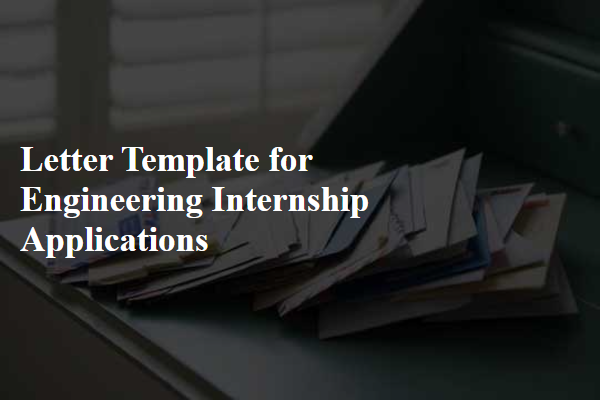
Professional Header
Creating a professional header for an engineering internship application is essential for establishing a formal and organized presentation. The header should include the applicant's full name, phone number, email address, and LinkedIn profile link. For instance, the name could be displayed in a bold and larger font size to stand out. The contact information should be aligned neatly, preferably in a smaller font size to maintain a clean aesthetic. Including the date of application, followed by the recipient's name, title, company, and address further demonstrates professionalism. For example, "John Doe | 123-456-7890 | johndoe@email.com | linkedin.com/in/johndoe" sets an informative tone that conveys readiness and attention to detail, pivotal traits for engineering roles.
Clear Subject Line
Engineering internships provide valuable industry experience, essential for students and recent graduates pursuing careers in engineering fields such as civil, mechanical, or electrical engineering. A clear subject line, like "Application for Mechanical Engineering Internship - [Your Name]," ensures effective communication and quick identification of the intent. Specific internship details, including company name, location, and application deadline, enhance clarity and professionalism. Tailoring the content to highlight relevant skills, coursework, and projects demonstrates a strong fit for the position. Additionally, expressing enthusiasm for the company's mission and contributions to the field can create a memorable impression on recruiters.
Customized Salutation
A customized salutation in a professional engineering internship application sets a respectful and engaging tone. Addressing the hiring manager by name enhances personalization, indicating the applicant's attention to detail. For example, "Dear Mr. Smith" or "Dear Dr. Johnson" showcases professionalism and genuine interest in the specific position. Including the correct title and spelling of the name is crucial for making a positive first impression. Researching the company's leadership can provide valuable insights and enhance the connection with the potential employer, ultimately increasing the chances of a successful application.
Concise Introduction
Aspiring engineers pursue internships to gain practical experience in dynamic environments. Engineering interns, often students or recent graduates, work under the guidance of industry professionals to apply theoretical knowledge to real-world projects. Notable companies offering internships include Google, Tesla, and Boeing, providing opportunities that enhance technical skills and boost career prospects. Engaging in projects related to engineering fields such as mechanical, civil, or electrical allows interns to contribute to innovative solutions while developing essential soft skills like teamwork and communication.
Demonstrated Relevant Skills
Aspiring engineering professionals often pursue internship opportunities to apply their academic knowledge in practical settings, enhancing their skill set and gaining real-world experience. Proficiency in software tools like AutoCAD (used for architectural designs), SolidWorks (for 3D modeling), and MATLAB (for data analysis and algorithm development) showcases technical capabilities. Hands-on projects, such as a solar energy system design (aimed at sustainability) or a robotics competition entry (which promotes teamwork and innovation), illustrate problem-solving skills and creativity. Furthermore, participation in engineering clubs or organizations, like IEEE (Institute of Electrical and Electronics Engineers), fosters networking and collaboration, essential for career development. These experiences collectively indicate a strong foundation and readiness for the challenges of an engineering internship.
Letter Template For Engineering Internship Applications Samples
Letter template of engineering internship application for mechanical engineering students
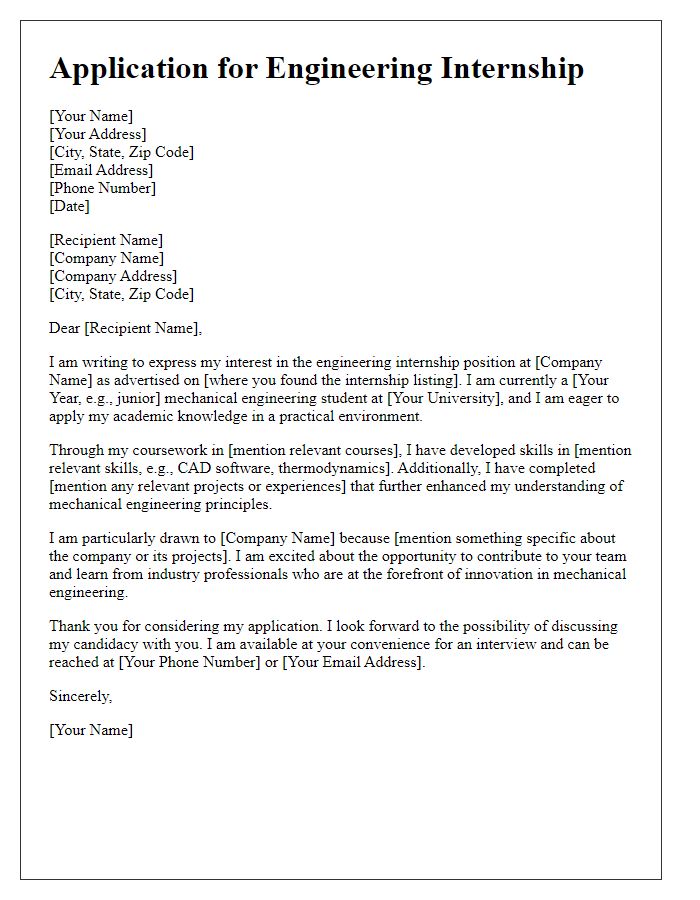
Letter template of engineering internship application for electrical engineering candidates
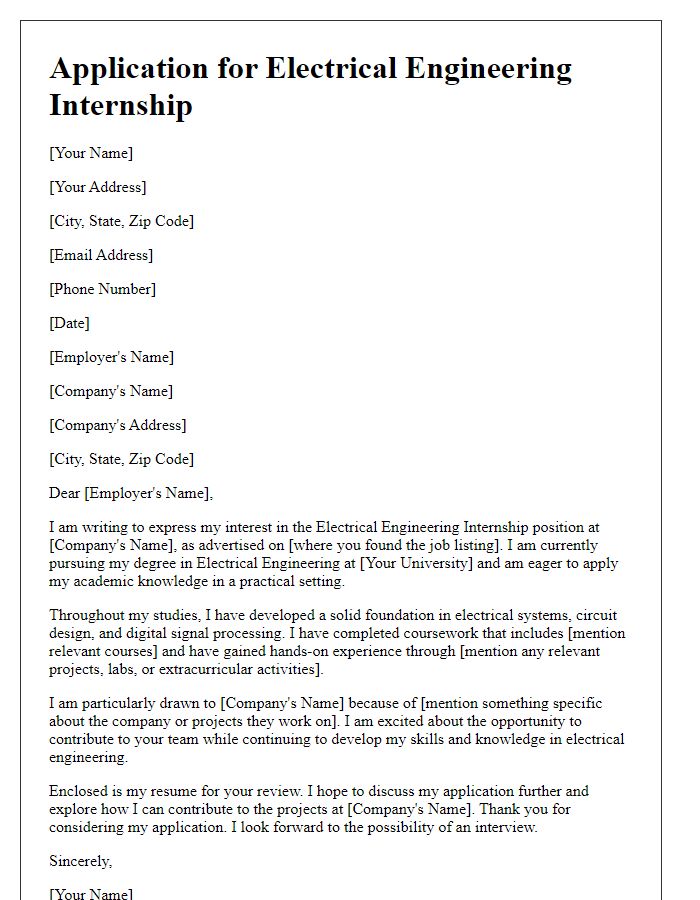
Letter template of engineering internship application for civil engineering aspirants
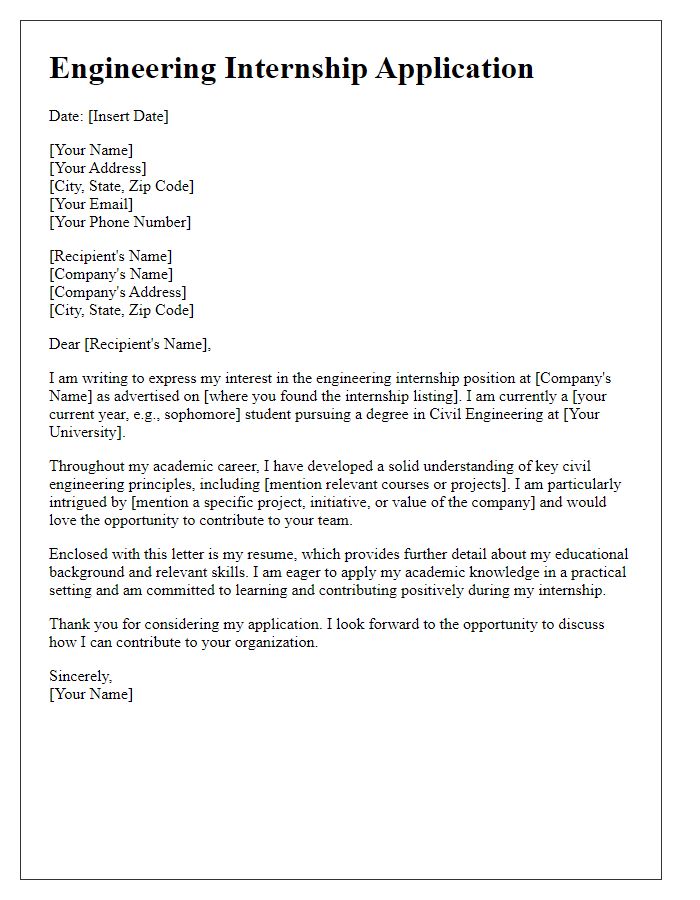
Letter template of engineering internship application for software engineering roles
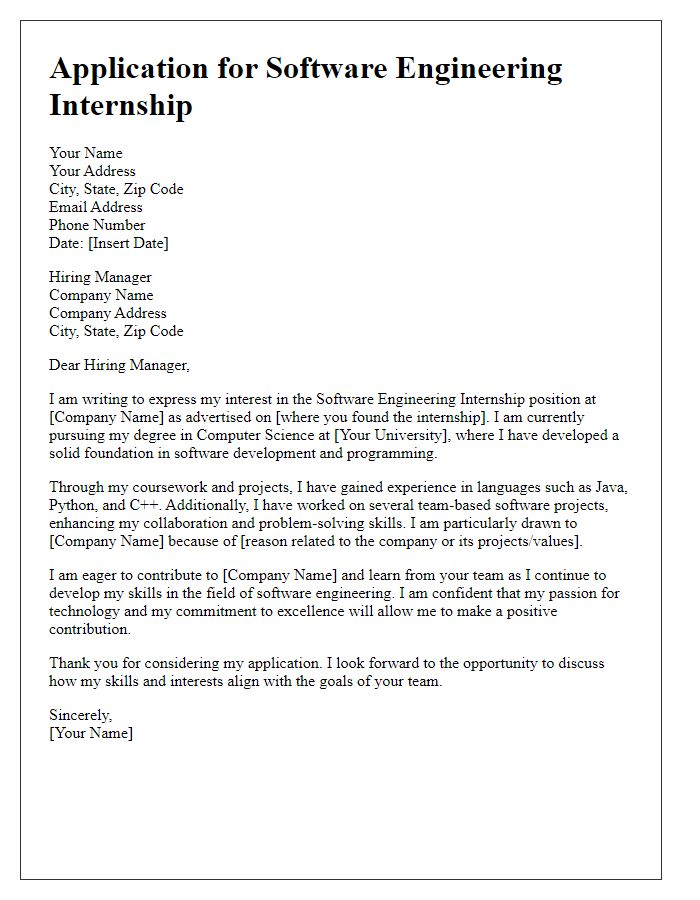
Letter template of engineering internship application for aerospace engineering opportunities
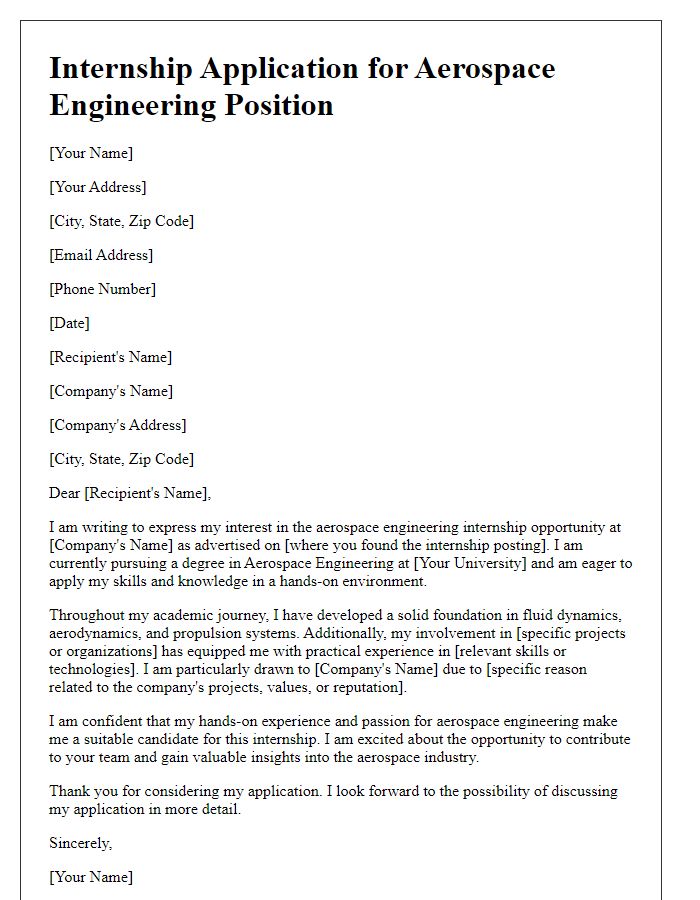
Letter template of engineering internship application for environmental engineering positions
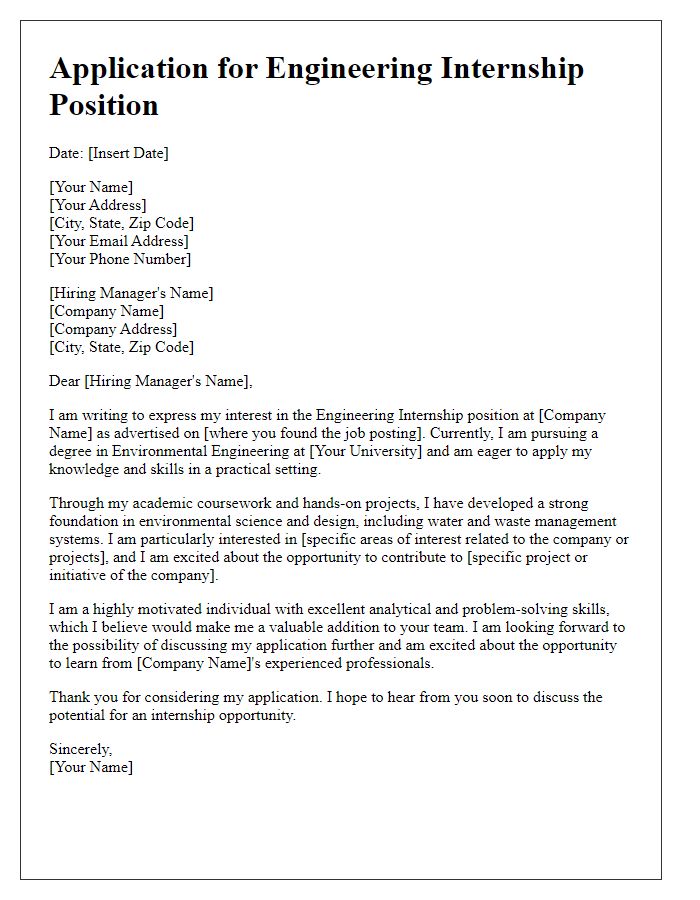
Letter template of engineering internship application for chemical engineering openings
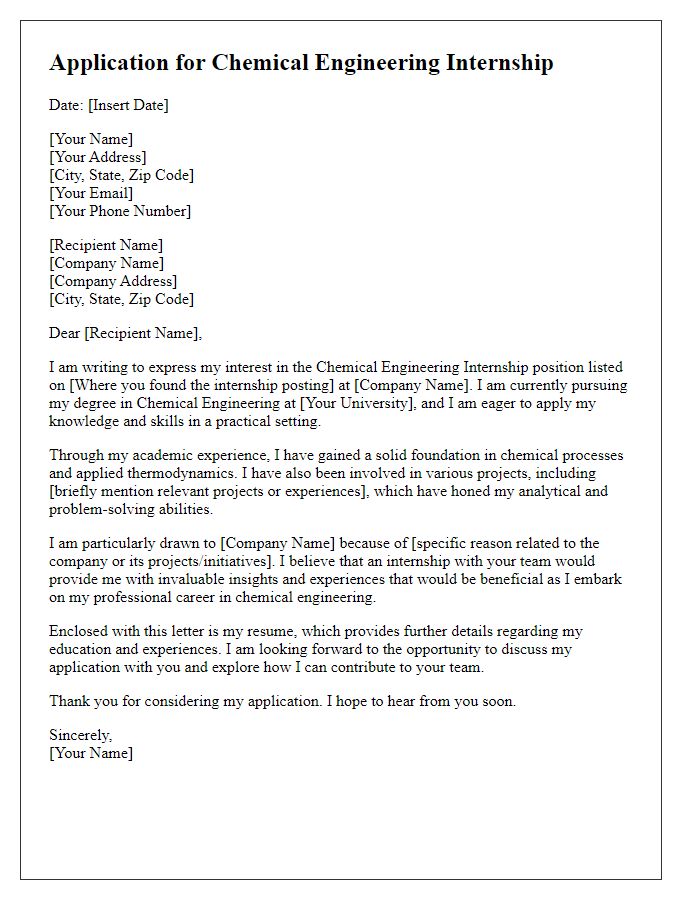
Letter template of engineering internship application for industrial engineering prospects
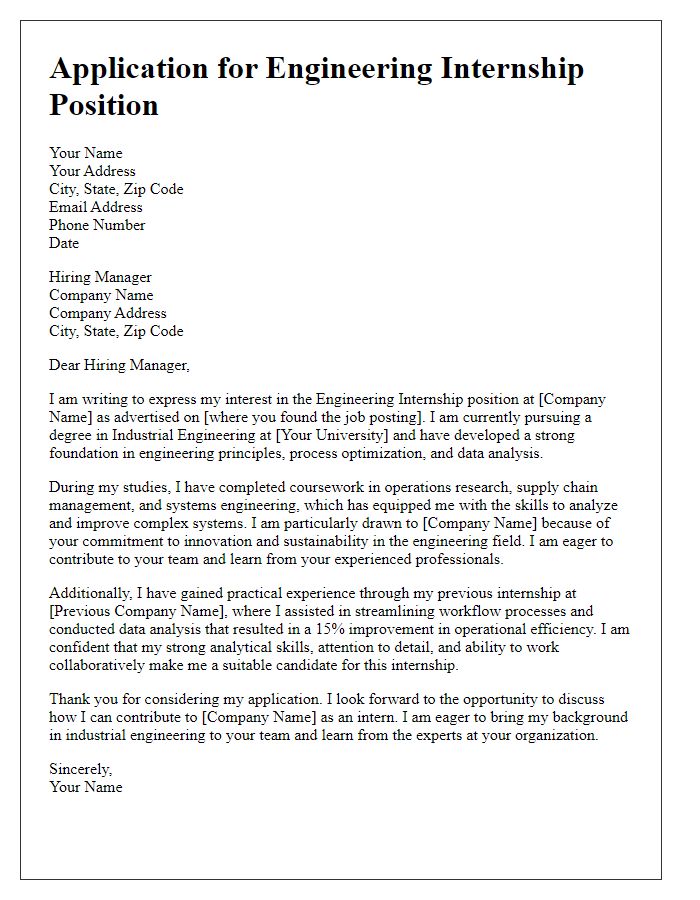
Letter template of engineering internship application for structural engineering roles
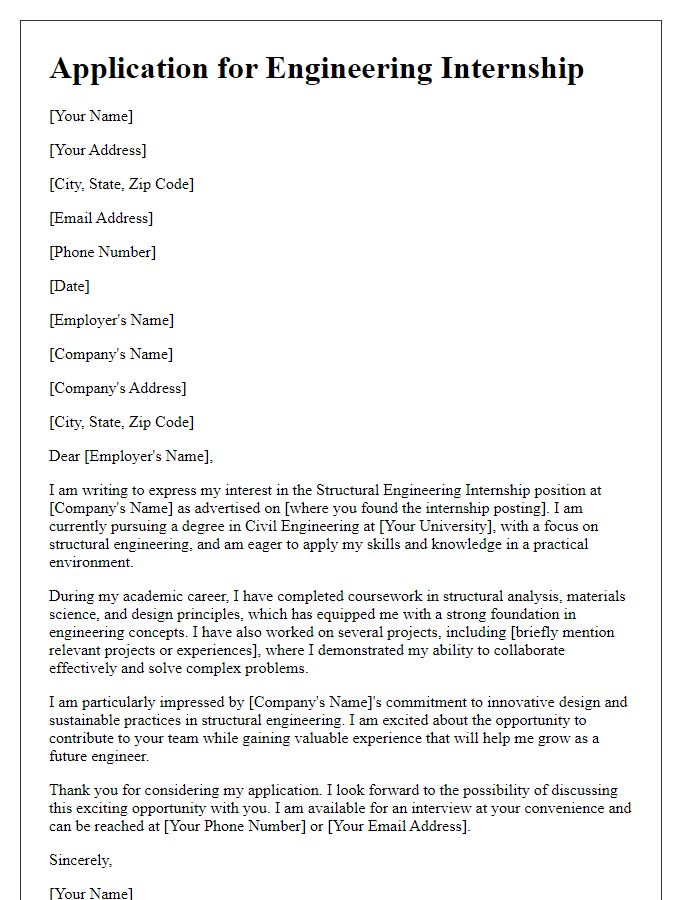

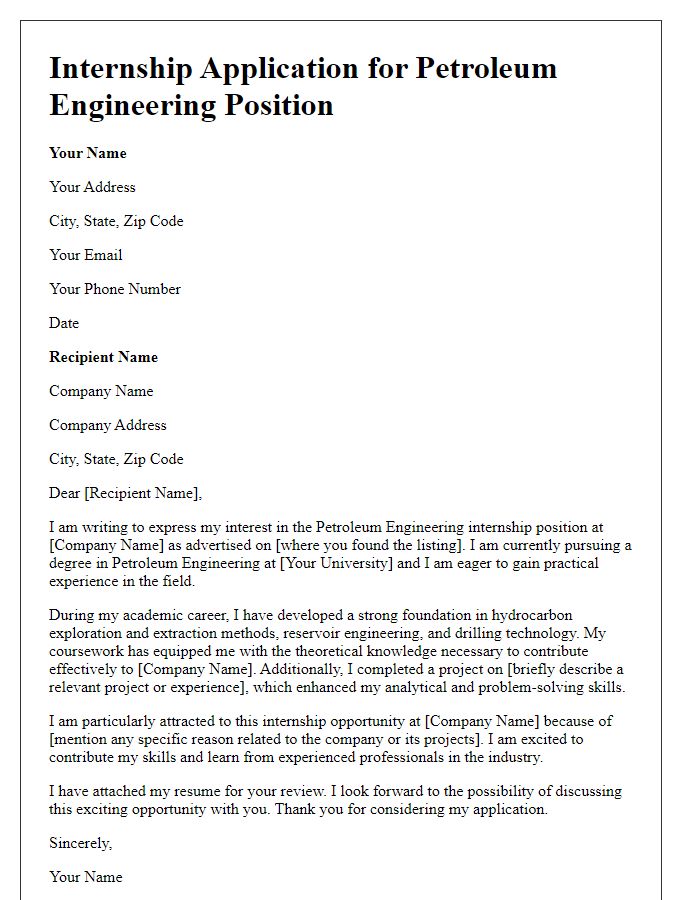


Comments